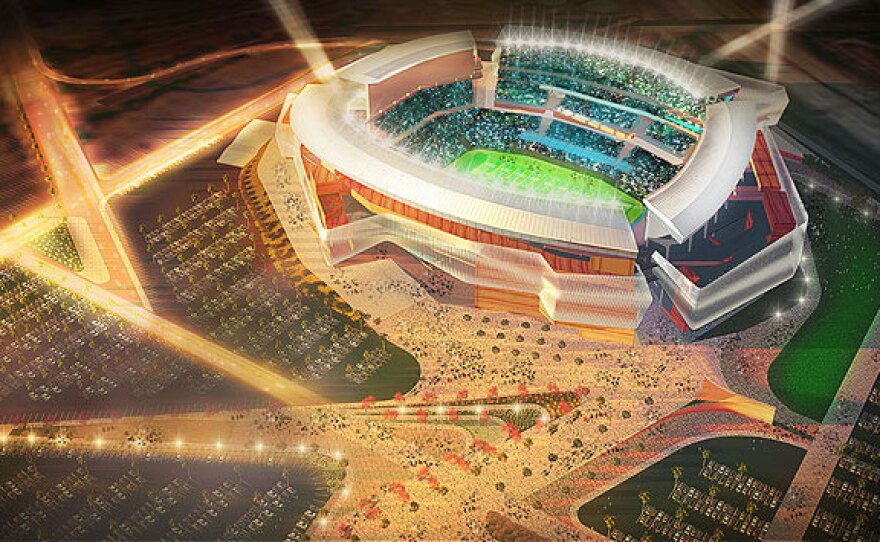Gov. Jerry Brown has decided that San Diego's Mission Valley stadium project qualifies for an expedited review process under state law.
The governor's certification will designate the project as an "environmental leadership development project," which expedites the review of potential legal challenges to the stadium's environmental impact report. It sets a 270-day court process.
If the Mission Valley stadium is built, it would be home for the Chargers, the San Diego State University football team, Holiday and Poinsettia bowls, high school championships and special events.
"This gives our Mission Valley project more certainty and momentum," Mayor Kevin Faulconer said Thursday in a statement. "I thank the Governor for supporting our efforts to create a state-of-the-art, environmentally friendly and Super Bowl-ready stadium. I also appreciate the efforts of Speaker (Toni) Atkins, who was instrumental in the Capitol."
The certification will be complete once the Legislature's Joint Legislative Budget Committee concurs or does not concur in writing, city officials said. If the committee does not take action, the certification is final.
The Chargers broke off talks with the city about a new stadium in San Diego in June, objecting to the environmental study's timeline.
Chargers special counsel Mark Fabiani said the governor's action doesn't change the fact that the environmental impact report is "fatally flawed" legally, nor does it include the time the state Supreme Court might need to review a legal challenge.
It also doesn't protect the project against challenges on issues not involving the California Environmental Quality Act, Fabiani said.
The Chargers have proposed building a joint stadium with the Oakland Raiders in Carson. The NFL is set to make a decision soon on its plan to return at least one professional football to the Los Angeles area. The St. Louis Rams also want to build a stadium in the L.A. area. The team has a proposal for one in Inglewood.
Separately, a citizen's initiative was announced Thursday that would raise San Diego's hotel room tax to 15.5 percent, permit hotel property owners to assess themselves to fund an expansion of the convention center, and allow for construction of a downtown stadium in conjunction with the expansion project. It would also clear the way for a project to turn over the Qualcomm Stadium property to university and park uses, subject to approval by the City Council.
"In talking to folks, what became clear pretty quickly is that all of those things are intricately connected to one another," lawyer Cory Briggs told reporters. "What we did is we took all the moving parts and put them together in a way that gives all of the backers a really strong incentive to do the right thing."
The initiative would be aimed for the June 2016 ballot, according to its supporters, who are associated with Briggs and San Diegans For Open Government.
He said a 21-day review period for the initiative will begin Friday, and when that's over, they'll have until mid-January to collect their goal of around 75,000 valid signatures to qualify it for the primary election.
The convention center expansion project has been stalled since a court ruling that the hotel owners couldn't add a charge to their room taxes to pay for the project without a public vote. The proposed initiative would resolve that issue, but would preclude what tourism officials want the most, an expansion of the center that would keep all the exhibit space together.
The initiative includes no public money for the Chargers, but the cost of a stadium component of a convention center expansion would be less than that of a stand-alone stadium, Briggs said.
Fabiani said he has no comment on Briggs' plan because he hasn't read the ballot measure's language. A group called the San Diego Stadium Coalition gave the plan its backing and put up $50,000 to start the signature-gathering process.
Mayoral spokesman Matt Awbrey said the initiative contains "a wide range of issues lumped into this single measure," so it will need to be analyzed for "flaws and issues."
The review also will look at whether it helps or hurts local tourism and San Diego's ability to continue working with the National Football League on the Mission Valley stadium plan, Awbrey said.
Briggs said the initiative is simpler than it first appears, and does nothing to prevent the Mission Valley stadium project.






